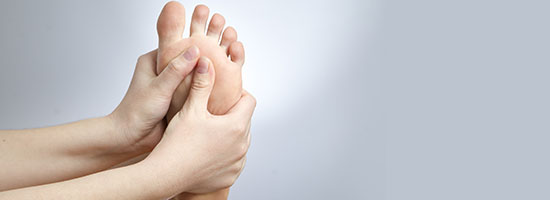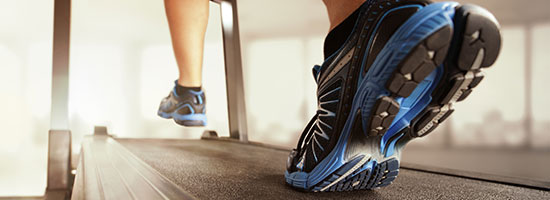Athletes are no stranger when it comes to pain or discomfort that can be caused by the strain of sports, and orthotics for athletes can help. Without proper protection one may suffer from a large variety of different issues that could potentially be avoided by using orthotics specifically fashioned for your own individual needs.
An orthotic is a general term for a device that is inserted into a shoe. Orthotics for athletes need to be custom-made for each individual after consultation with a doctor. They are used to cushion and support the foot, control abnormal foot movement, and help injuries heal. Shoe inserts that offer cushioning and arch support are also widely available, but it is incorrect to refer to off-the-shelf shoe inserts as orthotics.
Who Needs Orthotics?
Athletes suffering from plantar fasciitis, tendonitis, shin splints, stress fractures, or pain in the foot or ankle should consider consulting a podiatrist for proper diagnosis and treatment. These conditions are commonly caused by poor biomechanics, either due to a biomechanical abnormality, habitual poor movement, or incorrect conditioning programs that lead to muscle weakness or imbalances.
Visiting a Podiatrist
During evaluation of the problem, the doctor will evaluate your medical history, examine the feet and legs, and observe you walking, running, and performing sports-specific movements. The doctor will also need to examine your shoes for abnormal wear patterns and signs of incorrect shoe-fit, so it is important to bring a well-used pair to the evaluation. A plan to heal the condition and then prevent it from recurring often starts with a custom orthotic to allow healing to occur, and a prescription to visit a physical therapist for retraining in how to use the body in a more biomechanically correct fashion in order to prevent the problem from recurring. The podiatrist may also provide advice about changing training plans to aid in healing and prevent the problem from recurring.
Is Orthotics for Athletes Only for Foot Pain?

Over- and Under-Pronation
Many athletes who use the heel-strike method of running excessively rotate their feet with each foot-strike (over-pronation), a condition that can cause pain and stress fractures in the feet. Others don’t rotate their foot enough with each foot-strike (under-pronation), a condition that causes excessive force to be transmitted up the leg, leading to shin splints, stress fractures, and chronic pain. Orthotics can help prevent over- and under-pronation. A consultation with a podiatrist to be evaluated for pronation problems before beginning training can help prevent injuries from developing later.
How is Orthotics for Athletes Constructed?
After evaluation, the doctor will take three-dimensional images of the feet. The orthotic will then be constructed in a special laboratory. Most orthotics are made out of plastic or graphite and are semi-rigid with added padding. The padding can break down after 2 or 3 years, but it can be replaced at a minimal cost in comparison to getting an entirely new orthotic.
What to Expect
It can take several weeks for an orthotic to be constructed. Athletes should expect to slowly break in the orthotics and get used to them over a two week period; during the break-in period, you may find they cause some minor discomfort. However, after the break-in period orthotics should improve your comfort while walking, running, and standing. If after the two-week initial period you find that the orthotic increases discomfort, causes pain in any part of the body, or doesn’t help with the initial problem, you should consult the podiatrist. Everyone’s body is different, and it is possible the orthotic will need to be redesigned to correct the problem.
How Long is Orthotics for Athletes Worn?
Once an athlete has recovered from an injury and has learned ways to correct biomechanical problems through training and physical therapy the orthotic should, in most cases, not be necessary. However, athletes who suffer from a biomechanical abnormality may need to use orthotics life-long in order to prevent pain and injuries. A trained podiatrist can provide advice as to when or if to discontinue using an orthotic.
Who Doesn’t Need Orthotics?
Many athletes mistakenly think that all hard-working athletes need orthotics to support and cushion the feet. However, athletes who do not have a biomechanical problem or an injury generally will not benefit from orthotics and may, in fact, experience discomfort using them. Orthotic use will not prevent injury in athletes who do not have a biomechanical problem. In fact, some studies have found that some athletes using orthotics for injury prevention experience increased stress on their joints and have to expand significantly more energy while running. Many studies report that using the proper form of sports and proper conditioning programs are the key factors in preventing injury, not orthotic use. However, some athletes without biomechanical problems report improved comfort and performance while wearing orthotics; for these individuals, continued use of the orthotic is a very good idea. Your doctor can help you determine whether orthotics for athletes are a good choice for you.
Regardless of any issues, you may be experiencing with your feet, the stress being induced on your feet and joints from being an active athlete make it difficult to keep your body healthy and maintained on your own. Our experienced doctor can help you decide the best ways to keep your feet protected and free from pain. Schedule an appointment or talk with some of our staff to help you decide whether or not orthotics are right for you and which will best be tailored to your personal needs.













